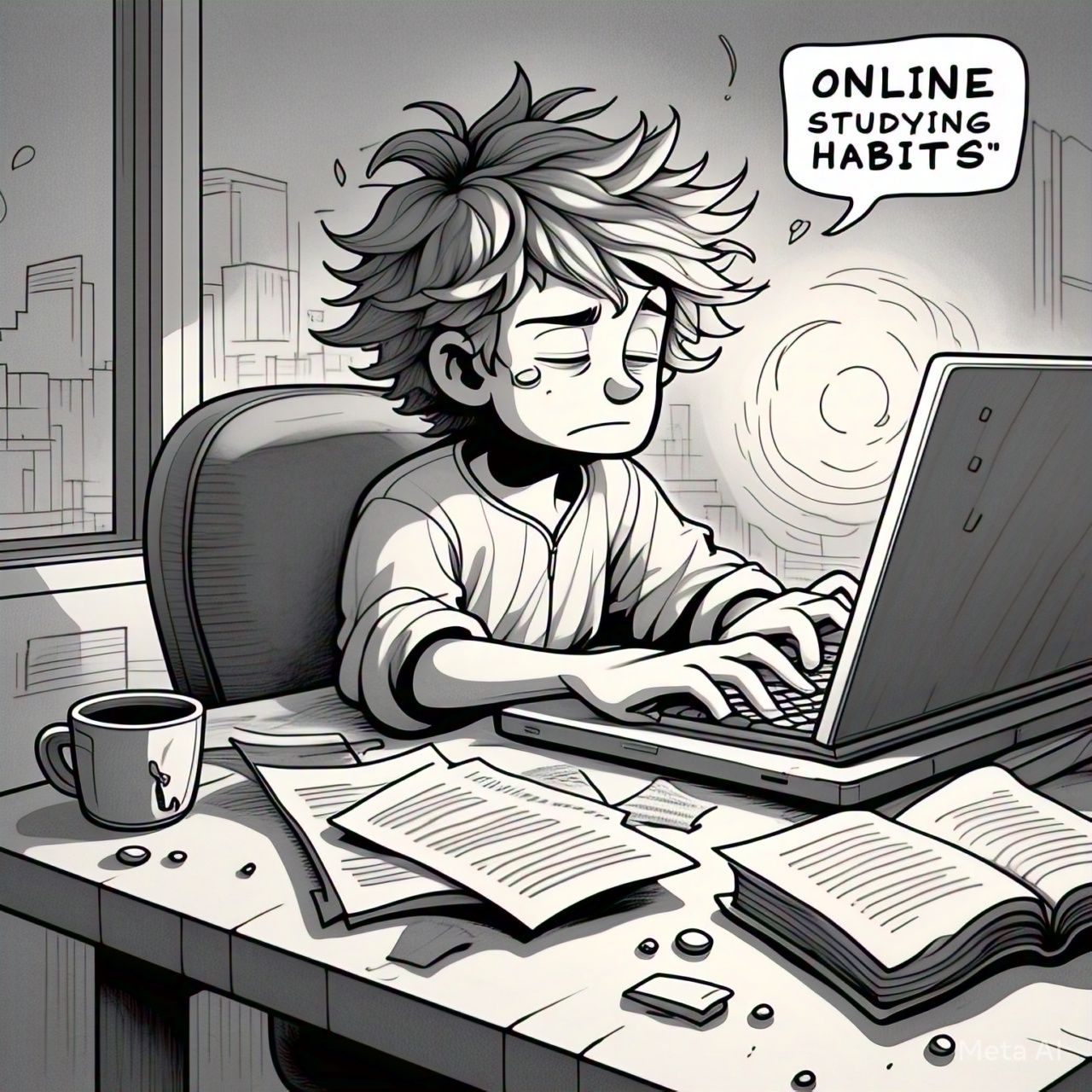Let’s be honest, online studying is a different beast altogether.
Waking up for a 7 a.m. coaching class in the pre-2020 era meant brushing, bathing, dressing up, and running like you were in an Olympics qualifier. Now? It just means flipping your phone from horizontal to vertical and mumbling “present sir” with your mic off.
Welcome to the era of online studying habits—where the struggle is real, the temptation to nap is stronger, and your teacher is unknowingly talking to a screen full of profile pictures and blank stares.
So how do you actually master this art of studying from home without turning into a blanket burrito with Wi-Fi?
Let’s dive in. Pajamas allowed.
☕ 1. The Myth of “Waking Up 5 Minutes Before Class”
We’ve all done it. Set 7 alarms. Snoozed them all. Woke up at 6:59. Clicked the Zoom link at 7:00.
But here’s the catch: Your brain needs time to boot up. Unlike your laptop, it doesn’t have a fast processor. Give yourself at least 15–20 minutes to wake up, freshen up (at least splash some water, come on), and convince your neurons that it’s time to learn.
Pro Tip: Keep your phone away from your bed. Like, on the other side of the room. Force yourself to get up.
🪑 2. Sit Like a Student, Not a Sleepy Sloth
Studying from bed sounds like a dream. That’s because it usually ends in one.
Set up a proper desk or table. Even your dining table works better than the bed. Your posture matters—slouching leads to sleeping, and sleeping leads to… well, a missed class and a confused “when did the teacher end the lecture?” moment.
📵 3. Disable Distraction Devices
Your phone is your biggest enemy (after math).
If you’re watching the class on a laptop, keep the phone on silent or in another room. If you’re watching class on the phone, turn off WhatsApp, Instagram, and YouTube notifications—because one ping is all it takes to fall into a scroll-hole.
🍪 4. Snacks, But Make Them Study-Friendly
Having something to munch on isn’t a crime—but avoid chips that crunch louder than your teacher’s mic. Opt for fruits, dry snacks, or something that won’t distract you (or others, if your mic is on).
And no, coffee is not a meal. But it is allowed.
👀 5. Cameras On = Brain On
If your teacher insists on turning the camera on, thank them. Yes, really.
It’s the only thing keeping half the class from becoming background sleepers in a black screen lineup. You’re less likely to zone out when your face is visible. Accountability, folks. It works.
📝 6. Notes Over Naps
Even if the class is recorded, don’t rely on watching the recording later. Let’s be honest: “later” means “never” unless you’re really dedicated (and if you are, please teach us your ways).
Keep a notebook handy. Write key points. Doodle if it helps. Just keep your hand moving and your brain engaged.
😅 7. When in Doubt, Ask (Or Pretend You’re About To)
Even if you don’t have a doubt, acting like you might ask something keeps you alert. Sit up. Nod occasionally. Type “yes sir” or “noted ma’am” in the chat. Your teacher will be impressed, and your mind won’t drift off into the void of “what should I eat after class?”
🎓 The Bottom Line
Online studying habits aren’t about being perfect. It’s about making small tweaks so you don’t accidentally take a 90-minute nap with your mic and camera off.
Entrance exams are tough—but attending coaching classes half-asleep makes it tougher.
So next time you wake up for class, sit at a table, sip something warm, and remind yourself: you’re not just studying for an exam, you’re training your brain to show up, even when you’d rather be in bed.
And hey, if you read this blog while lying down under your blanket—respect. But now get up and go wash your face, champ. 😄





